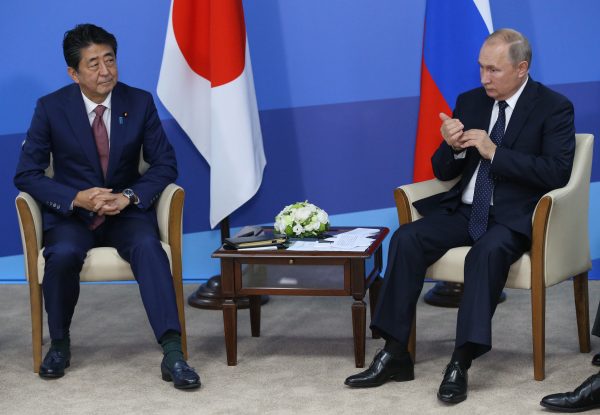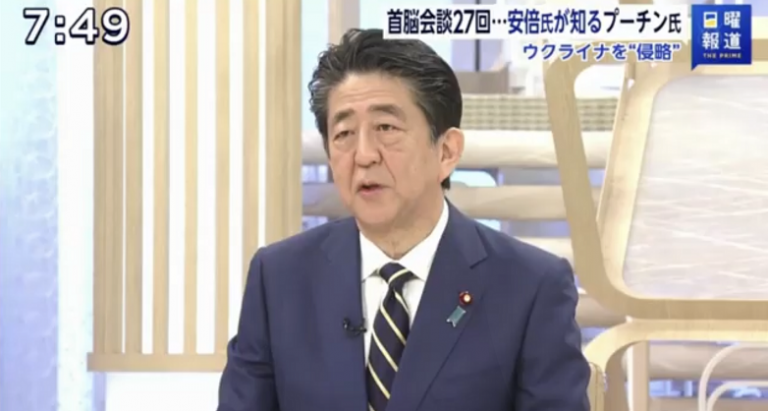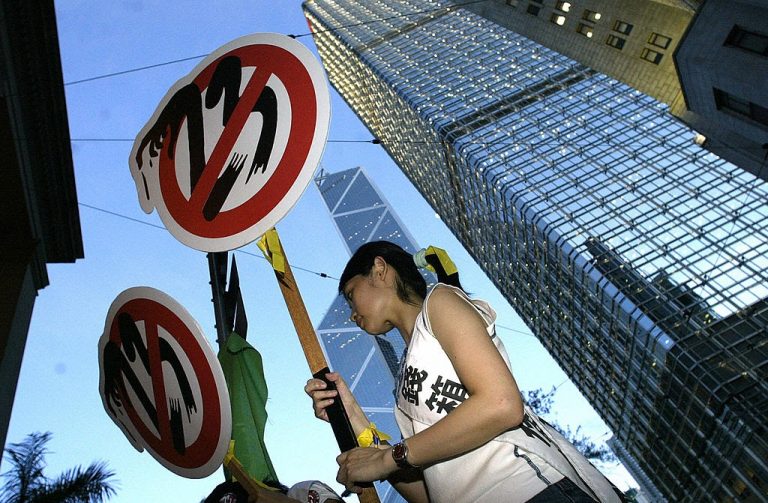Speaking with Japan’s Fuji Television, former prime minister Shinzo Abe discussed his past conversations with Russian President Vladimir Putin
Editorial update: Abe was assassinated on July 8, 2022, while making a campaign speech. Read more:
- Former Japanese PM Shinzo Abe Shot Dead During Campaign Speech
- Japan’s Ruling Party Wins Big in Polls Following Abe’s Death
As the war in Ukraine intensifies, the longest-serving Japanese head of state has given his assessment on Putin’s machinations in the conflict that began Feb. 24.
In the Feb. 27 interview, Abe told Fuji Television that from his more than two dozen talks with Putin, he believes that Putin’s distrust and fear of NATO are what ultimately led him to attack Ukraine.
For Putin, Abe said “he has no designs on taking territory, his actions are made from the perspective of protecting Russia and guaranteeing its security.”
Success
You are now signed up for our newsletter
Success
Check your email to complete sign up
According to Fuji Television, Abe has met with Putin 27 times in the nearly 10 years he served as Japan’s prime minister. Abe, known for his conservative politics, resigned in September 2020 on account of worsening health.

Abe made his remarks on Putin in response to questions posed to him about the Russian invasion. “Putin absolutely cannot tolerate the expansion of NATO to Ukraine,” Abe said, adding that the Russian leader expressed his misgivings about Russia-U.S. relations — such as the stationing of American THAAD anti-ballistic missiles in Poland — in conversations between himself and Abe.
He also said that “Putin is vehement in his view” that NATO made, but broke, a promise not to expand eastwards.
READ MORE:
- Xi Tells Putin to Resolve Ukraine Conflict Via ‘Negotiation’, Lifts All Restrictions on Russian Wheat
- Putin Facing a Mountain of Crippling Sanctions Following Invasion of Ukraine
- Chinese Nationals in Ukraine Worry for Their Safety as Beijing Pushes Pro-Russia Line
Whether NATO made such a guarantee to Russia around the collapse of the Soviet Union is a matter of enduring controversy.
Joshua R. Itzkowitz Shifrinson, a scholar of international relations, wrote in a 2016 article published by the International Security journal that while no formal agreement was made with Moscow, “from all the evidence, the quid pro quo was clear: [Soviet leader] Gorbachev acceded to Germany’s western alignment and the U.S. would limit NATO’s expansion.”
“NATO’s widening umbrella doesn’t justify Putin’s bellicosity or his incursions in Ukraine or Georgia. Still, the evidence suggests that Russia’s protests have merit and that U.S. policy has contributed to current tensions in Europe,” Shifrinson wrote.
According to Japanese media reports, Abe did not excuse Putin’s actions in Ukraine. In a meeting of his political party, the Liberal Democratic Party (LDP), the former statesman said that “Russia’s invasion of Ukraine absolutely cannot be tolerated.”
“Russia should resolve its problems through dialogue, and withdraw its troops immediately.”















